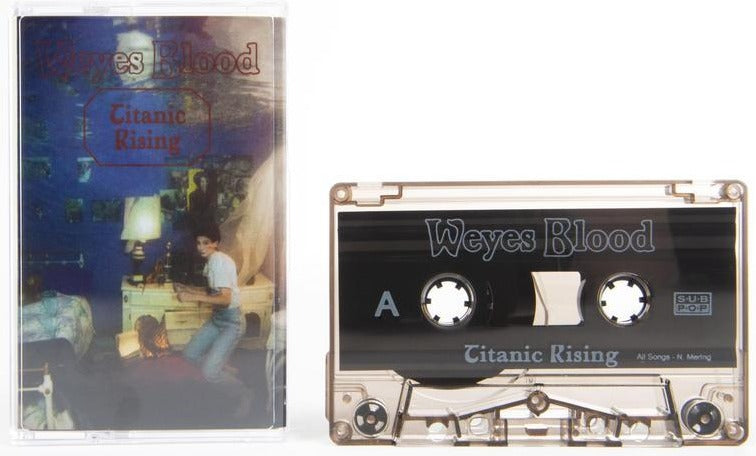Description
Our #1 album of 2019 on cassette!
We also have it on vinyl.
In 1976, Karen Carpenter called Occupants of Interplanetary Craft. In 2019, Natalie Mering called back. An album of otherworldly beauty, Weyes Blood's Titanic Rising is like a '70s classic that has been dislodged from the constructs of time and space, and the single album that everybody at BrooklynVegan could agree on in 2019. "I try to be futuristic and ancient at once, which is a difficult alchemy," Mering said when the album was announced. "It’s taken a lot of different tries to get it right.” Originally planned for 2018, we didn't actually get her first record for Sub Pop till April 2019 but Titanic Rising was worth the wait. Working with co-producer Jonathan Rado (who knows his way around classic Laurel Canyon folk-pop sounds) and musicians like Blake Mills, The Lemon Twigs' Brian & Michael D'Addario, Chris Cohen and others, Mering got it all right, casting an even wider sonic net than on Front Row Seat to Earth. The magic is a mix of swoony strings and slide guitar that, with Mering's shiver-inducing voice, lowers the gravity in any room the album is played. Songs like "Something to Believe," "Andromeda," and "Mirror Forever" absolutely soar.
It's not pure aural nostalgia, though; the arrangements throw in curveballs that The Carpenters or Joni Mitchell would never include. Opener "A Lot's Gonna Change" drops perfectly clunky robot noises into the song's orchestral crescendo, and the strings on "Andromeda" are degraded like a cassette tape left on the dashboard of a car in the middle of July. For all the surreal futurism in the production (and on the album's amazing underwater artwork), however, Mering's lyrics remain relatable to most earthlings, poetic and poignant but as crystal clear as her voice. She sings of feeling lost and alone, realizing love never works like it does in the movies, and the search for meaning and hope in a world that doesn't seem to have any. "Looking up to the sky for something I may never find," she sings on showstopper "Andromeda," and we too are lost in the stars. [Bill Pearis]

